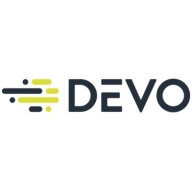

Devo and Graylog Security offer robust security solutions, yet they excel in different areas based on user reviews. Users are happier with Devo's pricing and support, while Graylog Security is preferred for its features.
Features: Users value Devo for its comprehensive analytics, customizable alerting capabilities, and actionable insights. Graylog Security is preferred for its log management efficiency, real-time threat detection, and flexible data storage options.
Room for Improvement: Devo users suggest enhancements in report generation, interface intuitiveness, and greater integration capabilities. Graylog Security users desire better scalability, improved integration options, and a more user-friendly setup process.
Ease of Deployment and Customer Service: Devo is noted for its straightforward deployment and responsive customer service. Graylog Security is appreciated for its versatile deployment options but receives mixed reviews on customer support.
Pricing and ROI: Devo users find the setup cost to be reasonable and experience satisfactory ROI. Graylog Security users express concerns about the initial setup cost but report good ROI.


Devo is the only cloud-native logging and security analytics platform that releases the full potential of all your data to empower bold, confident action when it matters most. Only the Devo platform delivers the powerful combination of real-time visibility, high-performance analytics, scalability, multitenancy, and low TCO crucial for monitoring and securing business operations as enterprises accelerate their shift to the cloud.
Graylog Security is designed for log management and analysis, assisting in monitoring security events, detecting threats, providing real-time alerts, and aiding troubleshooting and forensic investigations. Its scalability and customizable dashboards support IT departments in maintaining system performance and ensuring compliance.
With exceptional log management capabilities and powerful search functions, Graylog Security is reliable for threat hunting, integrating with other tools, and offering a user-friendly dashboard. Organizations value it for quickly analyzing large datasets and providing detailed insights into security events. However, better documentation and clearer instructions for new users, more efficient alerting capabilities, easier scaling, and enhanced support options could improve user satisfaction.
What are the most important features of Graylog Security?Graylog Security is implemented across diverse industries, including healthcare for patient data protection, finance for transaction monitoring and fraud detection, and retail for safeguarding customer information. Each industry leverages its detailed analytics and real-time alerting to meet specific regulatory and operational standards, ensuring a secure and compliant environment.
We monitor all Security Information and Event Management (SIEM) reviews to prevent fraudulent reviews and keep review quality high. We do not post reviews by company employees or direct competitors. We validate each review for authenticity via cross-reference with LinkedIn, and personal follow-up with the reviewer when necessary.